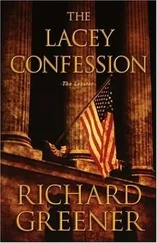Richard Greener - The Knowland Retribution
Здесь есть возможность читать онлайн «Richard Greener - The Knowland Retribution» весь текст электронной книги совершенно бесплатно (целиком полную версию без сокращений). В некоторых случаях можно слушать аудио, скачать через торрент в формате fb2 и присутствует краткое содержание. Жанр: Триллер, на английском языке. Описание произведения, (предисловие) а так же отзывы посетителей доступны на портале библиотеки ЛибКат.
- Название:The Knowland Retribution
- Автор:
- Жанр:
- Год:неизвестен
- ISBN:нет данных
- Рейтинг книги:5 / 5. Голосов: 1
-
Избранное:Добавить в избранное
- Отзывы:
-
Ваша оценка:
- 100
- 1
- 2
- 3
- 4
- 5
The Knowland Retribution: краткое содержание, описание и аннотация
Предлагаем к чтению аннотацию, описание, краткое содержание или предисловие (зависит от того, что написал сам автор книги «The Knowland Retribution»). Если вы не нашли необходимую информацию о книге — напишите в комментариях, мы постараемся отыскать её.
The Knowland Retribution — читать онлайн бесплатно полную книгу (весь текст) целиком
Ниже представлен текст книги, разбитый по страницам. Система сохранения места последней прочитанной страницы, позволяет с удобством читать онлайн бесплатно книгу «The Knowland Retribution», без необходимости каждый раз заново искать на чём Вы остановились. Поставьте закладку, и сможете в любой момент перейти на страницу, на которой закончили чтение.
Интервал:
Закладка:
The other bedroom was crammed with books. They were stuffed into bookshelves, piled on tables, stacked on the floor. The beds were made and the kitchen was spotless. Even the recessed light fixtures were dust free. “Isobel had help,” he thought. He liked the place, except for the artwork.
“Lovely joint,” he said. “You mentioned that your people are not poor.”
“Obviously not,” said Isobel, opening the refrigerator, not looking up. While the coffee brewed they sat at the kitchen table. She filled him in on her “perfectly ordinary” past.
Maurice Gitlin, her father, traded-in the great tradition of Englishmen who roamed the globe seeking to buy cheap and sell dear. He’d involved himself in deals pertaining to just about everything legal, and rumors persisted that from time to time he may have lost sight of the line. “Prosperity is the mother of invective,” he counseled Isobel whenever she asked if the stories about him were true.
Isobel spent much of her youth in Fiji, but called London and Paris home as well. She was into her teens before she realized that only some people had homes in the South Pacific, England, and France. After Oxford University, where she learned to trade on her village-girl accent and treat her stammer as less than a problem, Isobel felt an itch to try America. She’d visited many times. At twenty she enrolled in the Western Classics program at St. John’s in Annapolis. There she spent five years reading Plato, Virgil, Kant, Dante, and Nietzsche. She also wrote a regular column: “Sex and the Serious Student.” It was extremely popular, exciting much mail. She was thought “witty yet substantive,” “frank and irreverent,” “self-contained,” and “strangely, refreshingly modest.” She responded to letters from graduate students with references to the classics, judiciously laced with reader suggestions on how to find G-spots and execute blowjobs, and she was not averse, on occasion, to finding out for herself.
Isobel asked to be titled Associate Editor of the publication, which had, over time, been called many things, most recently Freethinker. Then she went to New York and applied for a job at the New York Times. Her editorial background and roots got her in, she told Walter, then added, “And my father, of course, has always been a help.”
They spent the rest of that day immersed in Isobel’s files. Of all the survivors, the ones on the kitchen walls seemed most promising to Walter. Isobel gave him details of their lives and losses. She knew a lot. She’d even tracked down most of them in their present circumstances. A few were hard to find, but she had a list with addresses for nearly all. Walter had a professional’s appreciation for Isobel’s work. Murder was a state, sometimes even a local, crime. Every cop involved in one jealously guarded territory. Homicide was the top of the pyramid for cops. After chasing car thieves, burglars, bad-check bouncers, and wife beaters, every policeman in America yearned to catch a homicide. Small-town cops looked on such a happening as if they had won the lottery. They dreamed of solving a killing. They saw themselves in the papers and on the evening news, famous just like the football coaches and NASCAR drivers. Big city detectives saw big news murders as career builders. They sought them out like Infantry officers; eager for a star, they seek out combat. However, just because a killing is notorious, just because it makes the New York Times front page, doesn’t mean it gets the attention of the best homicide detectives in the business. Jurisdiction was the whole ballgame. In Dallas, nearly half a century after the fact, they still smarted at losing the JFK murder to the feds.
Walter’s work took him to so many jurisdictions, he had a real sense of the differences in police competence. He did not like to make judgments. It’s just that he knew the importance of experience. He knew a murder like that of the little girl in Colorado, the beauty queen barely out of her toddler years, would have been solved in a New York minute- in New York. As it was, with an investigation lost in the boondocks of the west, he was just as sure no one would ever be arrested, tried, or convicted for that crime. If you’re going to kill someone, Walter knew, the best place to do it was somewhere they don’t have any murders, because that means they don’t have anybody who knows how to solve them. Boston and Houston were not, of course, the same as rural Tennessee. But if Boston cops needed information available only in Houston, which they undoubtedly did, or vise versa, Walter knew they could forget about it. If your suspect list contained hundreds of names, living in hundreds of places, he knew you would need the cooperation of hundreds of police departments. Not a chance in hell, he wagered. Left to their own devices, the police might never identify this killer, and the FBI would only gum up the works. No one in the know was any longer unaware that the FBI hadn’t caught anyone important in decades.
Isobel, or someone like her, was the only way. She had answered many of the most important questions, all by herself, long before any law enforcement agency could or would. It impressed Walter that she even knew the questions, no less was able to get so many of the answers. What Walter also knew was that she didn’t know how to take the answers she had, the data, and spin them into a single, definitive, correct identification. He was confident he could.
Her descriptions were concise and detailed. And they were interesting. She spoke of these people as if she knew them; treated their stories like her own; tried, with great success Walter thought, to get behind their eyes. From time to time he asked questions. She nearly always answered “I don’t know.” They quit at eleven and ordered Chinese food.
“What was the point,” asked Isobel, chewing Mu Shu pork, “of asking me questions you knew I could not answer?”
Walter looked at her carefully. She’d gone through the process for hours, never suggesting the slightest awareness of what he was up to. But she’d sniffed some purpose in him all the while.
“It’s been my experience,” Walter said, “that when people are telling you everything, you can ask them a question, any question, and if they don’t have the answer, they will say so. They’ll say ‘I don’t know.’ But if they are holding back, they will not do that. They won’t say ‘I don’t know.’ They’ll always give you something, true or not, just to be sure that you don’t suspect them of covering up or trying to mislead you.”
“F-fuck you. You were testing me all day and night.”
Walter winced. “That’s not the way to look at it. I have no reason to think you’re holding back. I didn’t. That’s not why.”
“Then, w-w-why?” That was the first time all day he’d heard her stutter. He felt a sharp pang of regret. It startled him because he hadn’t felt anything quite like it for a long, long time. At that point Walter became aware of a growing attachment, the nature of which was anything but clear.
“Everyone forgets important details,” he said. “You think you’ve said it all and then someone asks a question and another detail comes back. Talk to a doctor. Patients leave out all kinds of things when they talk about their symptoms. A cardiologist I know says patients with pacemakers often forget to tell him they have one. He doesn’t know till he listens to the chest. If you want to know every relevant thing, you have to ask. You must be persistent. It’s the question that brings it all back. That’s all.”
“You are an old shit,” she said. And the hint of hurt in her voice, and the certainty in Walter’s mind that she knew he was still not being completely honest, put a painful edge on that feeling of regret. He leaned forward and put his hand, very delicately, on hers.
Читать дальшеИнтервал:
Закладка:
Похожие книги на «The Knowland Retribution»
Представляем Вашему вниманию похожие книги на «The Knowland Retribution» списком для выбора. Мы отобрали схожую по названию и смыслу литературу в надежде предоставить читателям больше вариантов отыскать новые, интересные, ещё непрочитанные произведения.
Обсуждение, отзывы о книге «The Knowland Retribution» и просто собственные мнения читателей. Оставьте ваши комментарии, напишите, что Вы думаете о произведении, его смысле или главных героях. Укажите что конкретно понравилось, а что нет, и почему Вы так считаете.











